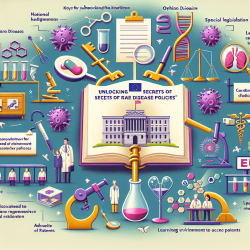Making Online Therapy Effective: Insights from Organ Donation Ethics
As an online therapy provider, TinyEYE is committed to enhancing the quality of our services. While it might seem unrelated, the ethical considerations in organ donation can provide valuable lessons for improving our practice. A recent study, "Presumed consent for organ preservation in uncontrolled donation after cardiac death in the United States: a public policy with serious consequences," highlights key ethical issues that can be applied to online therapy. Here’s how.
Understanding Ethical Boundaries
The study emphasizes the importance of respecting individual autonomy. In organ donation, presumed consent without explicit permission can violate personal rights. Similarly, in online therapy, we must ensure that consent is always informed and voluntary. This means:
- Clearly explaining the therapy process and its benefits
- Ensuring that clients or their guardians fully understand and agree to the terms
- Providing an easy way for clients to withdraw consent if they choose
Maintaining Transparency
The lack of transparency in presumed consent policies can erode public trust. In online therapy, transparency is equally crucial. Practitioners should:
- Be open about the methods and tools used in therapy
- Share progress reports regularly with clients and their families
- Discuss any changes in therapy plans in advance
Balancing Stakeholder Interests
In organ donation, the interests of donors and recipients must be balanced. For online therapy, balancing the needs of students, parents, and schools is vital. This can be achieved by:
- Creating individualized therapy plans that cater to each student's needs
- Engaging parents and teachers in the therapy process
- Regularly reviewing and adjusting therapy goals based on feedback
Encouraging Further Research
The ethical dilemmas in organ donation call for ongoing research and debate. Similarly, online therapy practitioners should stay informed about the latest research in special education and therapy techniques. Continuous learning can help improve service delivery and outcomes.
To read the original research paper, please follow this link: Presumed consent for organ preservation in uncontrolled donation after cardiac death in the United States: a public policy with serious consequences.
By incorporating these ethical considerations into our practice, we can enhance the effectiveness of online therapy and build stronger, more trusting relationships with our clients.










